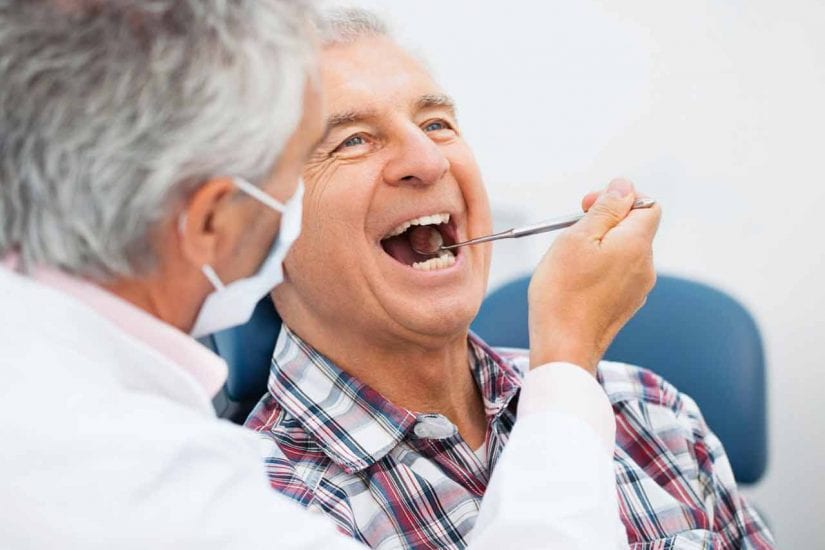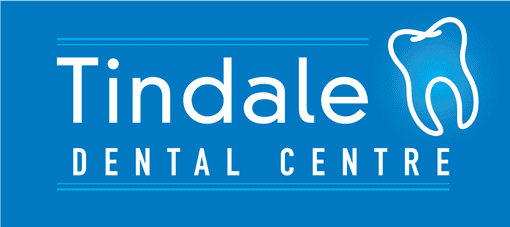
Many oral health risks increase with age. Seniors are more likely to experience certain dental diseases and related problems than people in younger age groups, due to a combination of age-related risks, health factors accumulated over a lifetime and lifestyle factors such as smoking and poor nutrition that may be controlled.
Talking to your dentist will give you a clearer idea of how to identify, manage or prevent oral health problems.
Tooth decay
Tooth decay (dental caries), the erosion of the teeth by bacteria in plaque, affects people of all ages.
It’s more common in younger age groups, due to seniors having fewer remaining teeth on average, but it also affects many older people and is the most common reason a tooth needs to be extracted over the age of 65.
If your dentist spots signs of tooth decay, they will offer advice about improving your oral hygiene and may recommend a filling to restore the tooth’s structure.
Gum disease
Gum disease (periodontal disease) is also caused by bacteria in plaque, if this reaches the gum and causes inflammation of the tissue. If gum disease is allowed to develop into periodontitis, it can sometimes cause teeth to become loose and fall out.
Seniors are at high risk of gum disease, with the last National Survey of Adult Oral Health finding that over half (53.4%) of people aged 65 and over had the disease. Seniors are also at higher risk of developing advanced gum disease, which can lead to tooth loss.
Gum disease may be treated in its early stage (gingivitis) by improving your oral hygiene, but you should also talk to your dentist about gum disease treatment if your gums feel sore or itchy or bleed when you brush your teeth.
Missing teeth
Australians aged 65 and over had an average of 10.8 missing teeth in 2013. Almost 1 in 5 people (19%) said they had no natural teeth remaining.
It’s no surprise that the average number of missing teeth increases with age, as teeth lost after childhood don’t grow back. However, an artificial tooth can perform the same functions to help restore the strength and appearance of your smile.
If you’re missing any teeth, talk to your dentist about treatments such as dentures, a dental bridge or dental implants to replace several teeth or all of the teeth in your mouth. Replacing missing teeth could help to treat other common oral health-related problems that affect seniors, such as those detailed below.
Avoiding certain foods
Almost a quarter (24%) of people over 65 say they avoid eating some foods due to issues with their teeth. This figure is higher for women than men (25.8% vs 19.7%).
Certain foods can cause discomfort for people with missing teeth, sensitive teeth, toothache or other dental problems. Some people with dentures also avoid certain foods, such as sticky foods, as they may cause dentures to become dislodged or damaged.
You should talk to your dentist or doctor if you’re worried that your eating habits may be affecting your nutrition and health.
Discomfort with dental appearance
Around 22% of seniors say they often feel uncomfortable about how their teeth, mouth or dentures look. This is more common for women (25.9%) than men (16.5%).
Replacing a missing tooth can fill an unsightly gap. Avoiding staining food and drink such as tea, coffee and red wine can help to prevent some teeth stains and discolouration.
If you want to make changes to your smile, you can talk to a dentist about cosmetic treatments they offer, such as teeth whitening and dental veneers. Your dentist will explain what these treatments involve and what the possible risks are, so you can make an informed decision.
Talk to our experienced Dentists in Penrith
Is it time for your regular check-up, or do you want to speak to a dentist? Get in touch with our friendly team at Tindale Dental Centre today!
Call our Penrith dentists on (02) 4726 5400 or make an appointment online.
References
[1] Griffin SO, Jones JA, Brunson D, Griffin PM & Bailey WD 2012. Burden of oral disease among older adults and implications for public health priorities. American Journal of Public Health 102(3): 411–418.
[2] Bennadi D and Reddy C 2013. Oral health related quality of life. Journal of International Society of Preventive and Community Dentistry 3(1): 1–6.
[3] Australian Institute of Health and Welfare (AIHW): Chrisopoulos S, Harford JE & Ellershaw A 2016. Oral health and dental care in Australia: key facts and figures 2015. Cat. no. DEN 229. Canberra: AIHW.
[4] AIHW: Harford JE & Islam S 2013. Adult oral health and dental visiting in Australia: results from the National Dental Telephone Interview Survey 2010. Dental Statistics and Research Series no. 65. Cat. no. DEN 227. Canberra: AIHW.
[5] Healthdirect. Tooth decay [Online] 2017 [Accessed January 2019] Available from: https://www.healthdirect.gov.au/tooth-decay
[6] Healthdirect. Gum disease [Online] 2017 [Accessed January 2019] Available from: https://www.healthdirect.gov.au/gum-disease
[7] Australian Dental Association. Dentures [Online] 2017 [Accessed January 2019] Available from: https://www.ada.org.au/Your-Dental-Health/Older-Adults-65/Dentures
[8] Healthdirect. Teeth whitening [Online] 2018 [Accessed January 2019] Available from: https://www.healthdirect.gov.au/teeth-whitening
